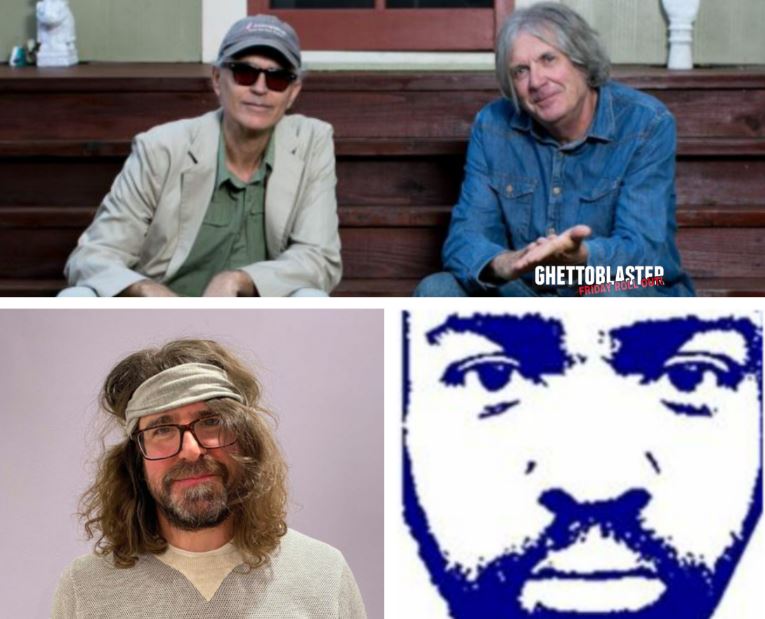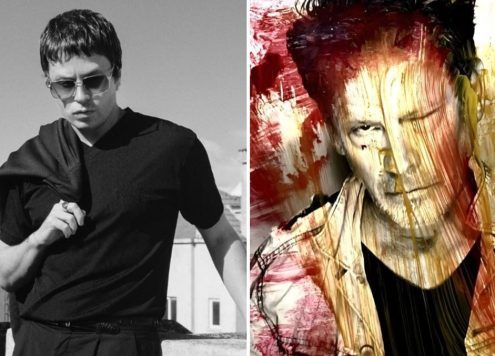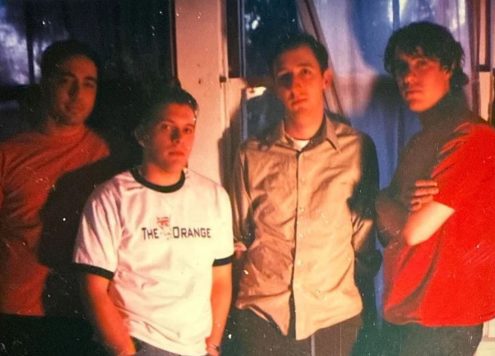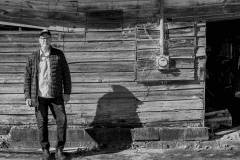20 years ago Masai Bey released the Paper Mache 12” on Definitive Jux and while it was received positively, Masai didn’t receive the same amount of shine some of his labelmates had, but that’s not to say he wasn’t a powerhouse of an artist without much to offer. On the contrary, he’s a beast of an emcee! Masai Bey has re-released Paper Mache digitally on Uncommon Records and it more than stands the test of time. The title track is a powerhouse, produced by EL-P, with his voice matching the aggressiveness of the fiery beat, with delivery & prose that are fitting. The eerie “Non-Stop” creeps around with staticky record sample, keys & thick beats hold that Boom-Bap tightly in fists with Masai’s brawny wordplay here. On “The Beginning,” also produced by EL-P, finds Masai Bey volleying his words alongside BMS & Vast Aire as the trio wind their words over the heaviness of the beat. The heaviness of the track never collapses upon itself, it simply is. Instrumentals of the tracks & acapellas are intertwined on the release, as well as a bonus of “Non-Stop (Live @ S.O.B.’s 2002). The release is tight and I’m fortunate to still have the 12” myself here.
Creeping out of the woodwork is a release of almost 30 songs, released by Lou Barlow’s all but forgotten Sentridoh, which ran concurrently to Sebadoh. This was Barlow’s lo-fi musical release for the most part, but offered up a great deal of melody through his songs that should never be ignored. While songs from lobiecore was originally released back in 2001, the songs still hold up today. If you don’t believe me, check “Ride A Hearse, Build A Thrown” or the sweet “Girls Come First.” I’m sure you’ll be pleasantly surprised.
I’m willing to go out on a limb and offer up how Jad Fair’s experience has never garnered him the notoriety he’s well deserved of. That includes over 50 albums he’s released or has been a part of, with groups and a number of artist collaborations (Half Japanese, Daniel Johnston, Teenage Fanclub, Yo La Tengo, Mosquito, etc.) The same could be said of Kramer – producer & musician – of his many efforts on his own and those with others (Gumball, B.A.L.L. Bongwater, Shockabilly), who throughout the years has been an indie stalwart himself. But this isn’t a history lesson, it’s more than that.
Jad Fair & Kramer have collaborated in the past, releasing albums and have now released The History Of Crying [Revisited](Shimmy Disc / Joyful Noise). The duo originally dropped a version of the album back in 2017 as a limited vinyl release and have revamped it, stepping into the 21st century. It’s more than promising, giving new listeners a look into something quite unique and inviting. The duo opens with the pop-filled psychedelia of “Red Red Sun,” with swirling instrumented wrapped around Fair’s melodic vocal delivery. Keyboards & piano wash all around the track as Paul Leary’s guitar notes are sprinkled throughout, although we can hear it hum in the background. Jad Fair splatters overdubbed and delightful background harmonies, and we get a sense there’s an indie orchestra supporting the duo but we know who’s here. With “I Wanna Make A Movie,” the 70s like backdrop is enticing with its sweet & delicate rhythm as Fair takes listeners on a journey through modern culture with dreams of accolades and popularity, mirroring those we always see through the eyes of social media. The music supporting his words allows the song a certain level of kitsch, although never relinquishing its nonsensical view of popular culture.
While songs may take different strides from one another, they do remain conjoined to one another, allowing the duo to keep its identity throughout the album. “I’ll still Give You The Moon” begins with Kramer’s melancholically strummed guitar as imagery of horses, dusty trails & tumbleweeds fill the imagination right before plodding keyboards and Fair’s voice drops in. He sings to lover attempting to prove himself giving his heart and we hear Leary’s soaring guitars in the background, dueling with keyboards for dominance. The song structure is magnificently pieced together and is no doubt a masterpiece. There are moments on the album where they trod into loosely fun compositions, much like on “Pickpockets Of Love” and “All I Need is A Kiss” but never relinquish the ability to draw and pull an extensive amount of melodies, the latter of which here is oddly addictive. I imagine songs like “Show Me The Way To Nowhere” could have been the theme song to an 80s sitcom but it’s much too grand to have gone that route. The vibe is there as its piano & percussion lead the way with Fair’s voice filling out the track as the missing element.
The return of Jad Fair & Kramer is welcomed, and with The History Of Crying [Revisited], they offer up more than enough reasons why they’ve remained musical stalwarts and an important piece of independent music. The compositions of the release speak volumes all on their own.











Social Media